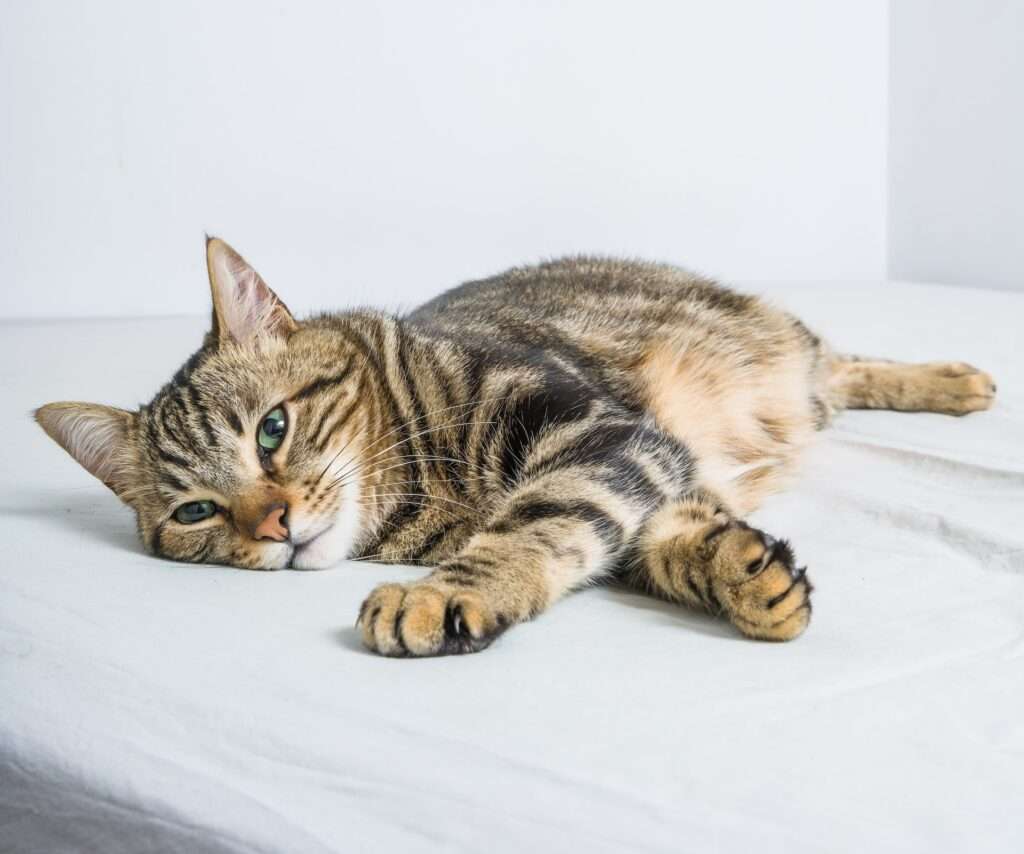Help! My Cat’s Meow is Weak and Raspy: What Should I Do?
Is your cat’s meow losing its strength and sounding raspy? Don’t ignore it – their communication may be telling us something important about their health! As devoted cat owners, we understand the value of our feline friends’ vocal expressions. But a weak and raspy meow could be a red flag for an underlying health issue.
It’s time to unravel the mystery and restore your cat’s vibrant meow. In this engaging blog, we delve into the common causes behind this concern and guide you through the crucial steps of diagnosis and treatment. Get ready to decode your cat’s unique language and ensure their well-being – because every meow matters!
What Causes a Weak and Raspy Meow in Cats?
Cats have a unique way of communicating with us through their meows. So, if you notice your furry friend’s meow sounding weak and raspy, it could be a sign that something is amiss. Here are some common culprits behind this change in their vocalization:
- Upper Respiratory Infections: Just like humans, cats can also fall victim to pesky upper respiratory infections. These infections can cause symptoms such as a runny nose, sneezing, coughing, and yes, a faint and raspy meow. It’s essential to keep an eye out for other signs of illness, like a lack of appetite or lethargy, and seek veterinary care if necessary.
- Feline Asthma: Cats can suffer from asthma, a chronic respiratory condition that can lead to inflammation in their air passages. When their airways are irritated, it can result in coughing, wheezing, and a feeble, hoarse meow. If you suspect your cat has asthma, it’s crucial to consult with a veterinarian for proper diagnosis and management strategies.
- Allergies: Just like humans, cats can develop allergies to environmental factors like pollen, dust, or smoke. When exposed to these allergens, they may experience respiratory problems, which can manifest as a weak and raspy meow. If you suspect allergies as the cause, your vet can help determine the specific allergen and recommend appropriate treatment options.
- Polyps or Tumors: Although rare, growths in the throat or mouth can interfere with your cat’s breathing and vocalization. These polyps or tumors can cause their meow to sound weak and raspy. If you notice persistent changes in your cat’s meow, it’s crucial to consult your veterinarian to rule out any potential growths or other underlying conditions.
It’s important to note that there could be other potential causes of a weak and raspy meow, including laryngeal paralysis, feline infectious peritonitis, and heart disease. It’s best to consult your veterinarian to determine the underlying cause of your cat’s meow.
How to Diagnose the Issue

If you notice that your feline companion’s meow is feeble and hoarse, it’s crucial to schedule a veterinary appointment for a thorough check-up. Your veterinarian is the best person to assess your cat’s health and determine the underlying cause of their weak and raspy meow. Here’s what you can expect during the diagnostic process:
- Veterinary Check-up: During the appointment, your veterinarian will likely inquire about your cat’s symptoms and medical history. They will carefully listen to your concerns and gather important information to aid in their evaluation.
- Physical Examination: Your veterinarian will perform a comprehensive physical examination of your cat. They will palpate their throat, check for any abnormalities, and assess their overall health. This examination helps identify any physical signs that may contribute to the weak and raspy meow.
- Diagnostic Tests: Based on the findings from the physical examination and the information you provide, your veterinarian may recommend additional diagnostic tests. These may include blood work, x-rays, or a throat swab. These tests help to rule out certain conditions and provide valuable insights into your cat’s health.
- Home Observation: As a caring pet parent, you can also play a role in the diagnostic process. Observe your cat closely at home and take note of any other signs they may be exhibiting, such as coughing, sneezing, or labored breathing. Recording your cat’s meow can be helpful as well. These observations and recordings can provide valuable information to share with your veterinarian, aiding in a more precise diagnosis.
Remember, your veterinarian’s expertise and professional guidance are essential in diagnosing the issue correctly. They will carefully analyze all the information gathered during the check-up, physical examination, and any diagnostic tests to reach an accurate conclusion. With their help, you can find the best course of action to address your cat’s weak and raspy meow and ensure their overall well-being.
Treatment Options
The treatment for a weak and raspy meow in cats varies depending on the underlying cause. Your veterinarian will determine the most suitable course of action. Here are some common treatment options they may consider:
- Antibiotics for Infections: If your cat’s weak and raspy meow is caused by an upper respiratory infection, your veterinarian may prescribe antibiotics. These medications help combat the infection and promote healing, ultimately restoring your cat’s vocalization to its normal strength.
- Steroids for Asthma: For cats with feline asthma, your veterinarian may recommend the use of steroids. Steroids help reduce inflammation in the airways, easing breathing difficulties and improving your cat’s meow. It’s important to follow the prescribed dosage and administration instructions to ensure your cat’s safety and maximize the effectiveness of the treatment.
- Antihistamines for Allergies: If allergies are the culprit behind your cat’s weak and raspy meow, your veterinarian may suggest antihistamines. These medications help alleviate allergic symptoms and minimize respiratory issues. Your veterinarian will determine the appropriate antihistamine and dosage based on your cat’s specific needs.
- Surgery for Polyps or Tumors: In cases where polyps or tumors are causing the weak and raspy meow, surgical intervention may be necessary. Your veterinarian will assess the growths and recommend the appropriate surgical procedure to remove them. This can restore your cat’s normal vocalization by eliminating the obstruction and allowing for proper airflow.
It’s crucial to follow your veterinarian’s instructions carefully throughout the treatment process. They will provide specific guidelines for medication administration, post-operative care (if applicable), and any follow-up appointments needed. Regular communication with your veterinarian is vital to monitor your cat’s progress and make any necessary adjustments to the treatment plan.
Remember, each cat is unique, and their response to treatment may vary. Patience and consistent care are key to supporting your cat’s recovery. With proper veterinary guidance and your devoted attention, your feline friend can regain their full vocal strength and continue communicating with you through their meows.
Preventing a Weak and Raspy Meow in Cats

As a devoted cat parent, you want to ensure your feline companion stays healthy and happy, and preventing a weak and raspy meow is an important part of that. Here are some proactive steps you can take to maintain your cat’s respiratory health and overall well-being:
- Keep Your Home Clean: Maintaining a clean and allergen-free environment is crucial for your cat’s respiratory health. Regularly clean your home, including vacuuming, dusting, and removing potential irritants. This helps reduce the presence of allergens like dust and pollen that can trigger respiratory issues in cats.
- Provide a Healthy Diet: A nutritious and well-balanced diet plays a vital role in supporting your cat’s immune system and overall health. Ensure their diet includes high-quality ingredients that meet their specific nutritional needs. Consult your veterinarian for guidance on choosing the right food for your cat.
- Keep Your Cat Up-to-Date on Vaccines: Vaccines are essential for protecting your cat against common upper respiratory infections and other diseases. By keeping your cat’s vaccinations up-to-date, you can significantly reduce the risk of them developing a weak and raspy meow due to preventable illnesses. Consult your veterinarian to establish an appropriate vaccination schedule for your cat.
- Avoid Smoking Around Your Cat: Just like humans, cats are also affected by the harmful effects of secondhand smoke. Avoid smoking in areas where your cat spends time, as exposure to smoke can worsen respiratory issues and lead to a weak and raspy meow. Opt for smoke-free environments to safeguard your cat’s respiratory health.
- Regular Veterinary Check-ups: Regular veterinary check-ups are crucial for monitoring your cat’s overall health and detecting any potential issues early on. Your veterinarian can assess your cat’s respiratory system, provide preventive care, and address any concerns you may have. Regular check-ups help ensure that your cat receives prompt treatment and necessary interventions to maintain a strong and clear meow.
By prioritizing your cat’s respiratory health and well-being, you’re actively contributing to their overall happiness and ensuring they continue to communicate with you through their vibrant and melodic meows.
Conclusion
In the world of our feline friends, a weak and raspy meow can be a signal that something isn’t quite right with their health. But fear not, dear cat parent! By promptly seeking veterinary care, you can set your beloved cat on a path to recovery. Remember, their meow is their unique way of communicating with you, and with proper diagnosis and treatment, they can continue to vocalize their needs for years to come.
With the guidance of your veterinarian, a comprehensive examination will be conducted to assess your cat’s health. Diagnostic tests may be recommended to delve deeper into the issue, providing vital insights for an accurate diagnosis. Armed with this information, your veterinarian can tailor a treatment plan specific to your cat’s needs.
Remember, the road to recovery may involve various treatment options such as antibiotics, steroids, antihistamines, or even surgical intervention if necessary. Following your veterinarian’s instructions diligently is key to optimizing the effectiveness of the treatment and ensuring your cat’s safety and comfort throughout the process.
Frequently Asked Questions
Q: Why is my cat’s meow weak and raspy?
A: A weak and raspy meow in cats can be caused by various factors. It could be due to a respiratory infection, an upper respiratory tract infection, laryngitis, allergies, or even a structural issue in the throat. If your cat’s meow has suddenly changed or if they show other signs of illness, it’s best to consult a veterinarian for a proper diagnosis and treatment.
Q: Should I be worried if my cat’s meow suddenly changes?
A: Yes, a sudden change in your cat’s meow can be a cause for concern. Cats are generally vocal creatures, and any significant change in their vocalization should be taken seriously. It’s important to monitor your cat’s behavior and overall health. If you notice other signs of illness or if the change persists, it’s advisable to seek veterinary attention.
Q: Can allergies cause a weak meow in cats?
A: Yes, allergies can potentially cause a weak meow in cats. Allergens such as pollen, dust mites, or certain foods can trigger an allergic reaction in cats, leading to inflammation in the respiratory system, including the throat. This inflammation can affect the strength and quality of your cat’s meow.
Q: How can I help my cat with a weak meow?
A: The best course of action is to consult a veterinarian for an accurate diagnosis and appropriate treatment. Depending on the underlying cause, your vet may prescribe medication, recommend a change in diet, or suggest environmental modifications to alleviate the symptoms and improve your cat’s meow.
Q: Can excessive meowing lead to a weak and raspy meow?
A: It is possible for excessive meowing to strain your cat’s vocal cords, leading to a weak and raspy meow. Cats may meow excessively due to various reasons such as stress, boredom, or seeking attention. If you notice your cat meowing excessively, it’s important to address the underlying cause and provide appropriate mental and physical stimulation to reduce the need for excessive vocalization.
Q: What can I do at home to help improve my cat’s meow?
A: If your cat’s weak and raspy meow is not caused by a serious medical condition, there are a few things you can do to help improve it. Ensure that your cat stays hydrated by providing fresh water and, if necessary, consult your veterinarian about using a humidifier to moisten the air. Avoid exposing your cat to irritants such as smoke, chemicals, or excessive dust. Additionally, providing a calm and stress-free environment can also aid in their vocal recovery.
Q: When should I take my cat to the vet for a weak and raspy meow?
A: It’s advisable to take your cat to the vet if their weak and raspy meow persists for more than a few days, is accompanied by other symptoms like coughing or sneezing, or if you notice any other changes in their behavior or overall health. A veterinarian will be able to examine your cat, identify the underlying cause, and provide appropriate treatment.
Remember, the information provided here is for general guidance only. It’s crucial to consult with a qualified veterinarian to get an accurate diagnosis and appropriate treatment for your cat’s specific condition.





